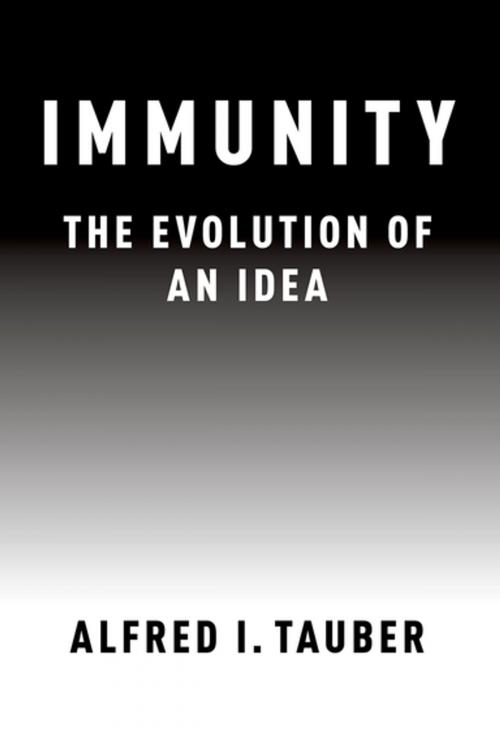Immunity
The Evolution of an Idea
Nonfiction, Health & Well Being, Medical, Medical Science, Immunology, Science & Nature, Science, Other Sciences, Philosophy & Social Aspects, Religion & Spirituality, Philosophy| Author: | Alfred I. Tauber | ISBN: | 9780190651268 |
| Publisher: | Oxford University Press | Publication: | January 2, 2017 |
| Imprint: | Oxford University Press | Language: | English |
| Author: | Alfred I. Tauber |
| ISBN: | 9780190651268 |
| Publisher: | Oxford University Press |
| Publication: | January 2, 2017 |
| Imprint: | Oxford University Press |
| Language: | English |
Modern immunology traditionally conceives of the immune system as providing defense against pathogens. Alfred I. Tauber criticizes this conception of immunity as too narrow, because it discounts much of the immune system's other normal functions. These include active tolerance of nutritional exchanges with the environment and the stabilization of cooperative relationships with resident micro-organisms. An expanded account extends immunity's functional role from singular 'defense' to broadened discernment of environmental 'exchange.' This ecological perspective has profound theoretical implications, for the basic notion of immune identity is reconfigured: highlighting the organism as a holobiont (a consortium of diverse organisms living in cooperative relationships) challenges prevailing concepts of individuality and the self/nonself dichotomy heretofore organizing immune theory. Indeed, if theoretical interest is focused on the challenges of maintaining immune balance in the full ecological context of the organism, then immune regulation assumes new complexity. Tauber maintains that the key to unravelling that puzzle requires a critical re-assessment of the cognitive processes that underlie immune effector functions. Accordingly, he provides the outline of a re-formulated 'cognitive paradigm' that dispenses with agent-based models and adopts an ecologically conceived understanding of perception and information processing. The implications of this revised configuration of immunity and its deconstructed notions of individuality and selfhood have wide significance for philosophers and life scientists working in immunology, ecology, and the cognitive sciences.
Modern immunology traditionally conceives of the immune system as providing defense against pathogens. Alfred I. Tauber criticizes this conception of immunity as too narrow, because it discounts much of the immune system's other normal functions. These include active tolerance of nutritional exchanges with the environment and the stabilization of cooperative relationships with resident micro-organisms. An expanded account extends immunity's functional role from singular 'defense' to broadened discernment of environmental 'exchange.' This ecological perspective has profound theoretical implications, for the basic notion of immune identity is reconfigured: highlighting the organism as a holobiont (a consortium of diverse organisms living in cooperative relationships) challenges prevailing concepts of individuality and the self/nonself dichotomy heretofore organizing immune theory. Indeed, if theoretical interest is focused on the challenges of maintaining immune balance in the full ecological context of the organism, then immune regulation assumes new complexity. Tauber maintains that the key to unravelling that puzzle requires a critical re-assessment of the cognitive processes that underlie immune effector functions. Accordingly, he provides the outline of a re-formulated 'cognitive paradigm' that dispenses with agent-based models and adopts an ecologically conceived understanding of perception and information processing. The implications of this revised configuration of immunity and its deconstructed notions of individuality and selfhood have wide significance for philosophers and life scientists working in immunology, ecology, and the cognitive sciences.















